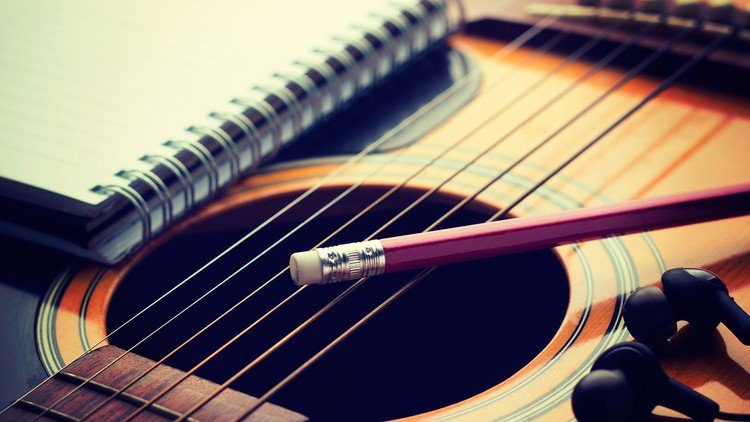Welcome to the Leeds Guitar Lessons blog! And thank you for checking out our very first post. My hope is that this will become an outlet for me to expound on topics I’m currently thinking about, relevant discoveries around technique and guitar playing concepts, and even expand on subjects that arise in lessons with my students. Whilst the start of a new year often brings with it a sense of optimistic resolution that all too quickly dissipates, I’m sincerely hoping this blog will keep me accountable to you all to constantly be reassessing my own playing, teaching, and approach to the guitar in general.
Resolution/s and discipline is a subject we’ve been discussing a lot recently in lessons, naturally for the time of year, and of course I understand how hard it can be to make time in our busy schedules for even the best of intentions. I’ve briefly outlined 7 steps below that have helped me (and I hope will also serve as a reminder to myself), and I hope they can be of some use to you too in creating a practise routine and maximising your enjoyment and growth on your instrument this coming year.
1. Have a clear goal.
There’s no point settling down to regular practise (unless you just feel like noodling on that particular day) if you don’t have a clearly defined idea of what you’d like to be developing in your playing, and the most effective method to do so. Are you hoping to improve your improvisation? Would you like to nail a particular solo? Does your band’s set need tightening up and reinvigorating? Figure out what you’re aiming for and write it down. Know why your practise is important and you’ll find the when and how far easier to prioritise.
2. Schedule.
Once you know what you need to be working on, figure out a regular (if possible) time when you can sit down and give this goal your undivided attention. This is often the step most people struggle with, however, if you don’t set aside time specifically to practise it will more often than not slide very quickly to the bottom of your priorities. Not only that but any practise time you do find will most likely be snatched, last minute, unplanned and often ineffective (although, hopefully, still fun).
3. Start small, really small.
What is literally the least you could do? There’s no point promising yourself you’ll fit in 2 hours of practise every day only to fall short within a matter of days when life gets in the way. This only serves to demoralise you and eventually undermine your practise headspace, as well as your commitment and consistency on a larger scale. I always ask my students ‘Could you fit in 2 minutes a day?’ and whilst this may sound glib, I mean it. Start off with a length of practise that is almost imporssible for you not to achieve regularly. Not only will this make finding the time to practise more manageable but you’ll tend to find that, once you’re sat down with your instrument, 2 minutes quickly turns into 5, then 10, and before you know it time loses all shape and meaning and you’re suddenly wondering where the last hour went.
4. Consistency is key.
Tying in with starting small, you’ll also find that regularity and consistency are far more powerful tools in your development than mere quantity of practise. Imagine cramming your weekly allowance of food and drink into every Monday morning before fasting the rest of the week. You’d no doubt simply make yourself sick in the short-term, and waste away to nothingness in the long. Similarly, regular and often is the best way to nourish your playing and avoid burn-out or complacency.
5. Review regularly.
Just because you’ve taken the time to construct a more mindful practise schedule doesn’t mean it’s going to work flawlessly immediately. There will be days where you legitimately just can’t find the time, things will no doubt come up unexpectedly, you may find you’re too tired or distracted at a particular time of day. Your practise should evolve over time and weave itself into the fabric of your day to day life. Unfortunately, this only happens with time and with careful and aware consideration for what works for you personally.
6. Forgive yourself.
With all the above being said, go easy on yourself. Just because you completely dropped the ball this week doesn’t mean your progress has been stunted forever. Treat each day as a completely fresh opportunity, devoid of guilt or frustration from the missed practise session the day/s or week/s before. Notice your small improvements and achievements, they are where real musicians are made, not overnight.
7. PLAY your instrument.
We may work on techniques, concepts or repertoire but we should never forget that we play our instrument. Making music is supposed to be fun and creatively rewarding and we should always remember that our practise should be enjoyable and that ultimately our drive to improve as players is motivated by wanting to be able to do more on our instrument and be more accomplished as players in order to make playing more enjoyable.
I hope you’re able to find some value in some of these tips and implement them into your own practise. Please let me know what you’ve found works best for you, and any tips of your own, in the comments below – or get in touch.

